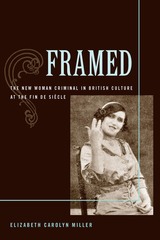
Sociocultural linguistics has long conceived of languages as well-bounded, separate codes. But the increasing diversity of languages encountered by most people in their daily lives challenges this conception. Because globalization has accelerated population flows, cities are now sites of encounter for groups that are highly diverse in terms of origins, cultural practices, and languages. Further, new media technologies invent communicative genres, foster hybrid semiotic practices, and spread diversity as they intensify contact and exchange between peoples who often are spatially removed and culturally different from each other. Diversity—even super-diversity—is now the norm.
In response, recent scholarship complicates traditional associations between languages and social identities, emphasizing the connectedness of communicative events and practices at different scales and the embedding of languages within new physical landscapes and mediated practices. This volume takes stock of the increasing diversity of linguistic phenomena and faces the theoretical-methodological challenges that accounting for such phenomena pose to socio-cultural linguistics. This book stages the debate on super-diversity that will be sure to interest societal linguists and serves as an invaluable reference for academic libraries specializing in the linguistics field.

Framed uses fin de siècle British crime narrative to pose a highly interesting question: why do female criminal characters tend to be alluring and appealing while fictional male criminals of the era are unsympathetic or even grotesque?
In this elegantly argued study, Elizabeth Carolyn Miller addresses this question, examining popular literary and cinematic culture from roughly 1880 to 1914 to shed light on an otherwise overlooked social and cultural type: the conspicuously glamorous New Woman criminal. In so doing, she breaks with the many Foucauldian studies of crime to emphasize the genuinely subversive aspects of these popular female figures. Drawing on a rich body of archival material, Miller argues that the New Woman Criminal exploited iconic elements of late nineteenth- and early twentieth-century commodity culture, including cosmetics and clothing, to fashion an illicit identity that enabled her to subvert legal authority in both the public and the private spheres.
"This is a truly extraordinary argument, one that will forever alter our view of turn-of-the-century literary culture, and Miller has demonstrated it with an enrapturing series of readings of fictional and filmic criminal figures. In the process, she has filled a gap between feminist studies of the New Woman of the 1890s and more gender-neutral studies of early twentieth-century literary and social change. Her book offers an extraordinarily important new way to think about the changing shape of political culture at the turn of the century."
---John Kucich, Professor of English, Rutgers University
"Given the intellectual adventurousness of these chapters, the rich material that the author has brought to bear, and its combination of archival depth and disciplinary range, any reader of this remarkable book will be amply rewarded."
---Jonathan Freedman, Professor of English and American Culture, University of Michigan
Elizabeth Carolyn Miller is Assistant Professor of English at the University of California, Davis.
digitalculturebooks is an imprint of the University of Michigan and the Scholarly Publishing Office of the University of Michigan Library dedicated to publishing innovative and accessible work exploring new media and their impact on society, culture, and scholarly communication. Visit the website at www.digitalculture.org.

READERS
Browse our collection.
PUBLISHERS
See BiblioVault's publisher services.
STUDENT SERVICES
Files for college accessibility offices.
UChicago Accessibility Resources
home | accessibility | search | about | contact us
BiblioVault ® 2001 - 2024
The University of Chicago Press









